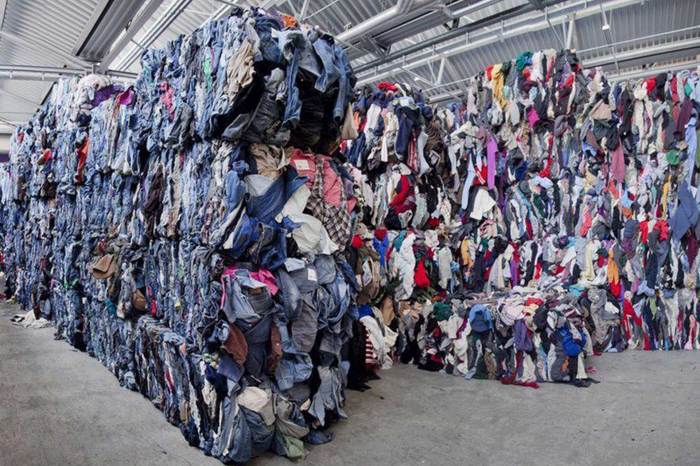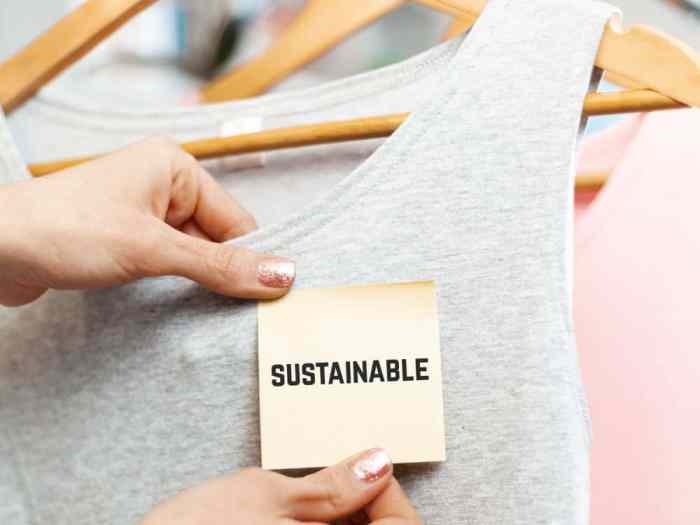Ethical fashion practices are the new cool, yo! Dive into a world where style meets sustainability, creating a vibe that’s all about doing good while looking fly.
From fair wages to eco-friendly materials, this movement is about to change the game in the fashion industry.
Importance of Ethical Fashion Practices

Ethical fashion practices are crucial in today’s society as they promote sustainability, fair labor practices, and social responsibility. By supporting ethical fashion, consumers can make a positive impact on the environment and communities while also ensuring the welfare of garment workers.
Environmental Benefits
- Reduced carbon footprint: Ethical fashion practices often involve using sustainable materials and production methods, which help reduce the environmental impact of the fashion industry.
- Conservation of resources: By promoting recycling, upcycling, and minimizing waste, ethical fashion practices contribute to the conservation of resources such as water and energy.
- Biodiversity preservation: Ethical fashion brands often prioritize protecting ecosystems and wildlife habitats, leading to a more sustainable and biodiverse planet.
Social Impact
- Empowerment of communities: Ethical fashion practices support local artisans and communities, providing them with fair wages and opportunities for economic growth.
- Improvement of working conditions: Ethical fashion brands prioritize safe working environments and fair labor practices, ensuring the well-being of garment workers.
- Promotion of inclusivity: Ethical fashion celebrates diversity and inclusivity, creating a more equitable and socially responsible industry.
Consequences of Unethical Practices
- Exploitation of workers: Unethical fashion practices often involve sweatshop labor, child labor, and unsafe working conditions, leading to human rights violations.
- Environmental degradation: Fast fashion and unethical production methods contribute to pollution, deforestation, and waste accumulation, harming the planet.
- Social inequality: Unethical fashion practices perpetuate social inequalities and exploitation, reinforcing unjust systems within the industry.
Components of Ethical Fashion Practices
Ethical fashion practices encompass a variety of principles that prioritize the well-being of workers, the environment, and consumers. These practices include ensuring fair wages, providing safe working conditions, using sustainable materials, and promoting transparency throughout the supply chain.
Fair Wages
- Ensuring that garment workers are paid a living wage that covers their basic needs and allows them to support themselves and their families.
- Implementing transparent wage structures to avoid exploitation and ensure fair compensation for labor.
- Partnering with factories and suppliers that prioritize fair wages for their employees.
Safe Working Conditions
- Maintaining safe and healthy working environments free from hazards and harmful chemicals.
- Regularly conducting audits and inspections to ensure compliance with safety standards.
- Providing proper training and resources to empower workers to prioritize their safety.
Sustainable Materials
- Using eco-friendly materials such as organic cotton, recycled polyester, and Tencel to reduce the environmental impact of production.
- Embracing circular fashion practices like upcycling and recycling to minimize waste and promote a more sustainable industry.
- Investing in research and development to discover innovative, sustainable materials for future use.
Comparison with Traditional Fashion Practices
Ethical fashion practices stand in stark contrast to traditional fashion industry practices, which often prioritize profit over people and the planet. While traditional fashion may prioritize cost-cutting measures, exploitation of labor, and fast fashion production, ethical fashion focuses on creating a positive impact on society and the environment.
Examples of Brands Implementing Ethical Fashion Practices
- Patagonia: Known for its commitment to sustainability, Patagonia uses recycled materials, fair trade practices, and ethical sourcing in its supply chain.
- People Tree: This UK-based brand partners with Fair Trade artisans in developing countries to produce ethical and sustainable clothing.
- Everlane: Everlane emphasizes transparency in its pricing and production processes, showcasing the true cost of fashion to consumers.
Challenges in Implementing Ethical Fashion Practices

Implementing ethical fashion practices can be challenging for brands due to various obstacles that may arise in the process. One common challenge is the resistance from stakeholders who prioritize profits over ethical considerations. Additionally, the complexities of ensuring supply chain transparency in the fashion industry pose a significant challenge. Brands often struggle to trace the origins of their products and verify if labor practices are ethical throughout the entire supply chain. Despite these challenges, there are strategies that brands can adopt to overcome these obstacles and successfully implement ethical fashion practices.
Supply Chain Transparency
Achieving supply chain transparency in the fashion industry is crucial for implementing ethical practices. This involves tracking the journey of a product from raw material sourcing to manufacturing and distribution. However, the global nature of supply chains and the involvement of multiple suppliers make it difficult for brands to ensure transparency at every stage. To overcome this challenge, brands can collaborate with suppliers who prioritize ethical practices and provide transparency reports. Utilizing technology such as blockchain can also help improve traceability and transparency in the supply chain.
Consumer Education and Awareness
Another challenge in implementing ethical fashion practices is the lack of consumer education and awareness. Many consumers are unaware of the environmental and social impact of fast fashion and may prioritize price and trends over ethical considerations. Brands can overcome this challenge by educating consumers about the importance of ethical fashion and promoting transparency in their practices. Engaging in transparent communication with consumers about sourcing, production processes, and ethical certifications can help build trust and loyalty among ethically-conscious consumers.
Regulatory Compliance
Meeting regulatory requirements and standards for ethical fashion practices can be a challenge for brands operating in different regions. Each country may have its own set of labor laws, environmental regulations, and ethical standards that brands need to comply with. To address this challenge, brands can conduct thorough research on the regulations in each market they operate in and ensure compliance with international standards such as the Fair Trade certification. Collaborating with industry associations and organizations can also help brands stay updated on regulatory changes and best practices in ethical fashion.
Consumer Awareness and Support for Ethical Fashion
Consumer awareness plays a crucial role in driving demand for ethical fashion. When consumers are informed about the negative impact of fast fashion on the environment and garment workers, they are more likely to seek out and support brands that prioritize ethical practices. This awareness can lead to a shift in consumer behavior towards more sustainable and responsible fashion choices.
Ways Consumers Can Support Ethical Fashion Practices
- Research Brands: Take the time to research and support brands that have transparent supply chains and prioritize fair labor practices.
- Buy Less, Choose Well: Instead of constantly buying new clothes, opt for quality pieces that are ethically made and durable.
- Support Secondhand and Vintage: Embrace sustainable fashion by shopping at thrift stores, consignment shops, or online platforms for pre-loved items.
- Engage with Brands: Reach out to brands directly to inquire about their ethical practices and encourage them to prioritize sustainability.
Impact of Social Media and Influencers on Promoting Ethical Fashion Brands
Social media and influencers have a powerful impact on promoting ethical fashion brands to a wider audience. Platforms like Instagram, TikTok, and YouTube allow brands to showcase their sustainable practices and connect with consumers who are passionate about ethical fashion. Influencers who advocate for sustainable living and ethical fashion can also influence their followers to make more conscious purchasing decisions, ultimately driving demand for ethical fashion products.
